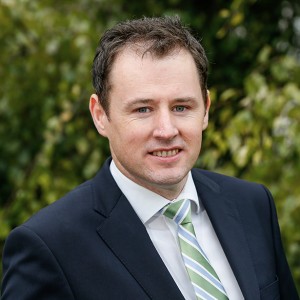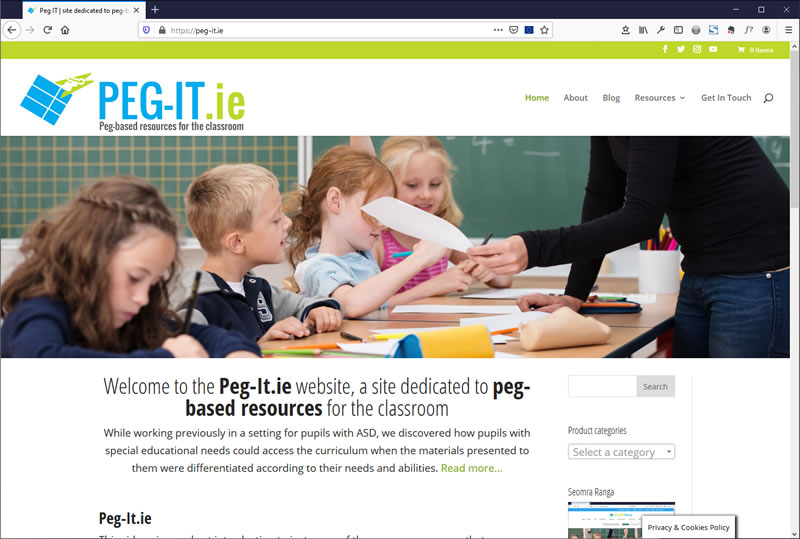 Charlie Mc Conalogue is from a farming background in Gleneely in Co. Donegal. He was educated at Carndonagh Community School before going on to study at UCD where he studied Economics, Politics & History.
Charlie Mc Conalogue is from a farming background in Gleneely in Co. Donegal. He was educated at Carndonagh Community School before going on to study at UCD where he studied Economics, Politics & History.
Charlie first ran for political office in 2009, where he was elected as a Donegal County Councillor. In 2011, Charlie was elected a TD for Donegal North East at the first time of asking. He is currently Fianna Fáil’s spokesperson on Education.
Seomra Ranga: Will your party remove the embargo on the filling of middle management posts in primary schools?
Charlie Mc Conalogue: Fianna Fáil is also committed to rebuilding middle management structures within both primary and secondary schools by removing the moratorium on posts of responsibility for assistant principals, ensuring that any additional posts are used to meet broader curriculum objectives of individual schools, including ICT, special needs education, pastoral care, and mentoring/induction/ CPD of teachers. As a start, we will provide for the appointment of approximately 350 new assistant principal posts, at a cost of €6.2 million in 2017/2018.
Seomra Ranga: What is your party’s position on church control in Irish education, the divestment process and the place of religion in school enrolment policies?
Charlie Mc Conalogue: Increasing diversity in school patronage is essential. We will engage in a more constructive manner than the Labour Party did with all education partners to energise the patronage divestment process. Fianna Fáil believes that all children regardless of religious denomination or outlook should have access to a school in their local community. We will set admissions criteria for over-subscribed schools, based on catchment area. Further details on the specific reforms we will make can be found in our education policy ‘Securing the Future’ available on our website.
Seomra Ranga: How will your party support the development of technology in primary schools, including meaningful access to quality broadband and the updating of basic technology hardware?
Charlie Mc Conalogue: At present ICT infrastructure within schools, especially at primary level, is inadequate and under-funded. In terms of capital investment in ICT infrastructure and equipment in schools, we are committed to the level of capital expenditure outlined in the Digital Strategy, including a multi-annual budget of €210 million 2016/17 to 2021/2022.
However a pressing problem encountered by schools in this area is inadequate ICT maintenance, which regularly results in early obsolescence of equipment. There is currently no programme funding that schools can draw down for ICT upgrades, despite the fact that such upgrades are predictable and inevitable. Maintenance funding, especially, needs to be put on a more predicable basis.
Seomra Ranga: Will your party restore the pay of entrants to the teaching profession since 2011 to that of earlier entrants and end the scandal of a two-tier pay scale?
Charlie Mc Conalogue: New entrants to the teaching profession do not receive the same allowances as longer serving teachers, which cannot be justified and is corrosive of morale within schools. In further pay agreements, we believe there should be a focus on equalising pay for new entrants and we are committed to restoring full equality of treatment for teachers.
On casualisation, we welcome the implementation of Ward Report recommendations on redeployment eligibility for Teachers covering for a secondment or career break, which will mean that teachers in temporary positions become eligible for a Contract of Indefinite Duration (CID) after two years of teaching. We will ensure full implementation of the Report’s recommendations for further reduction in workforce casualisation.
Seomra Ranga: Will your party end the public service pension levy?
Charlie Mc Conalogue: There is a need to improve take home pay of both teachers and other school staff. We believe improvements for public sector workers can be achieved through changes to pay levels, the pension levy, universal social charge, PRSI and PAYE taxes, or a combination of these. The pension levy should be reformed in a manner that is consistent with our stated objective of ensuring that low and middle income earners achieve the greatest benefit. In relation to pensions in payment, Fianna Fáil have committed to removing the public service pension reduction on pension incomes up to €50,000.
Seomra Ranga: Will your party increase funding to primary schools in order to help them adequately meet the day-to-day costs of running a school?
Charlie Mc Conalogue: Fianna Fáil is committed to free education for all. We believe that the current practice of schools being maintained by voluntary contributions is inequitable and not conducive to an efficiently functioning school system. The bottom line is that the government does not adequately fund schools to allow them to function properly. Primary Schools, especially, are badly funded and parents are being expected to make up the shortfall, regardless of whether they can afford a voluntary contribution or not.
We will implement an immediate increase in capitation funding for primary schools, at a cost of additional €21 million per year, and a restoration of pre-2010 capitation levels by 2019/2020 (€35 million).
Capital funding for minor works will be guaranteed to ensure funding predictability and give schools the confidence to undertake remedial works as required rather than waiting until maintenance problems deteriorate. On an annual basis (from 2017) €32 million will be available in a total package for minor works.
Seomra Ranga: Will your party further reduce class sizes to the average EU levels of 20 per class?
Charlie Mc Conalogue: Average class size in Ireland is 25 pupils, greater than the European average of 20. However, due to the large number of small schools the average masks significant variation among schools and at a county level. Approximately 125,000 (or one in five) primary school pupils are in “super-size” classes of over 30 students which was up from 96,000 in 2006/2007 and a shocking 9,639 (about 2%) pupils are in classes with more than 35 students. As a first step, to ease the burden on schools with ‘super-sized’ classes, Fianna Fáil will immediately reduce class sizes at primary level.
We are committed to reducing class sizes significantly over the term of government, reaching an average class size of 23 pupils. This will involve employing an additional 500 new teachers each year for five years, at a cost €105 million. At the end of five years, there will be 2,500 teachers additional to those required to cater for demographic growth. In addition to teachers required to meet increased demographic demand this will be 5,500 additional teachers in 2021.
Seomra Ranga: Will your party reverse the cuts to pupils with special educational needs and allow them their full access to additional teaching supports?
Charlie Mc Conalogue: Since coming to office, this government has set about dismantling the system of automatic entitlement for special education support that Fianna Fáil pioneered. This government took the easy route of implementing cuts of 15% on resource teaching hours and has since capped the number of SNAs available each year to below student demographic increases.
We will ensure that children with SEN receive an adequate level of resources to fully participate in mainstream education. We will increase the resource teaching hours allocations from 85% of Special Education Review Committee recommended allocation levels to 100% at a cost of €71 million.
Young children face extremely long delays in getting access to assessment, diagnosis and treatment for developmental delays.
We will overhaul the system for special needs assessment by putting in place an additional 100 NEPS psychologists in place to reduce waiting times. Fianna Fáil will also introduce new Early Intervention Teams to be situated ‘on-site’ in pre-schools and primary schools, working in clusters within designated geographic areas. These teams will be multi-disciplinary, including Speech and Language teams, Paediatric Occupational and Physical Therapists.
Seomra Ranga: What is your party’s vision for primary education in Ireland in the 21st century?
Charlie Mc Conalogue: Outside observers of Irish Education are frequently struck by the scale and pace of increased participation and progression in education, which, within the space of a single generation has been dramatic and truly extraordinary. However, just like in any modern society, we do not have an ideal education system and we face many challenging issues.
To progress and develop as a country, we need strong communities built around education and opportunity; values that Irish people have always held dear. Despite having limited means, previous generations in this country found the money to invest in education. We knew both individually, and as a country, that we could not afford to do otherwise. We should remember that we have always prioritised investment in education and we will need to continue to do so if we’re to have an inclusive, merit-based and quality system of education.
Editor’s Note: All political parties/groupings were sent the same set of questions on the same day and given five days to respond. To make a comparison, the responses from the other parties are also now on the site – except for Fine Gael, People Before Profit and Anti Austerity Alliance. None of these parties responded to the questions, despite a reminder email also being sent.





